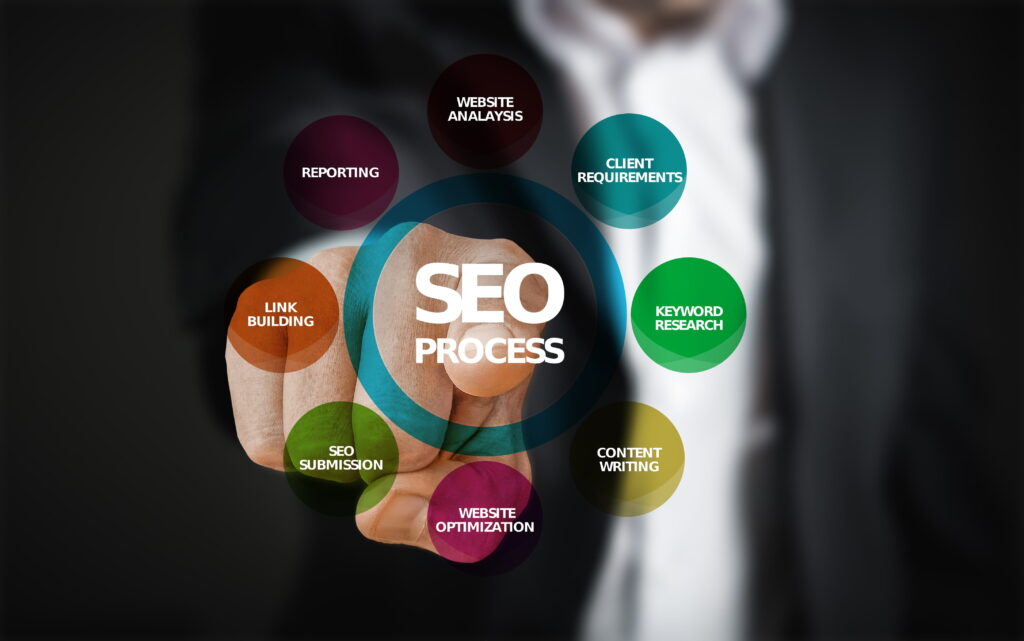
Websites that have a higher authority will rank higher on Google’s search results. Google now pays more attention to the authority of your pages and sites. Nonetheless, you are probably wondering how Google determines website authority. To achieve this, you may have to take advantage of different tools and launch various strategies. Also, people will likely buy their needs from a more renowned company than a random store on the street.
What is Website Authority?

You can quickly determine the strength of your brand authority by searching for your brand name on Google. Check at the search results and see if it reflects the actual value of your company. The result should be a healthy mix of video, articles, news, blogs, and other multimedia content. If your domain is found on the second page of the search result, you have some work to do. Remember that you have a website authority SEO problem if you are not showing on the first page. In the simplest term, site authority is how likely it is for a website to rank higher on a search engine’s SERP.
How Do I Find My Website Authority Score?

When calculating the website authority score, there are different factors that you need to consider. You may need to evaluate your number of healthy backlinks, linking roots, and others. Based on the latest update, Google computes the authority of a page based on the machine learning computation. If website A frequently appears higher in search results than website B, we should expect them to have a higher authority. Nonetheless, your website’s authority fluctuates over time as Google continues to add more metrics and data to its system. For example, you will notice that Facebook frequently appears on the first page of search engine results today. The reason behind this is the increasing number of links on this platform.
How to Improve Your Website Authority

Domain authority is a part of building your online reputation. Being an authority in the industry will give credibility, trustworthiness, and professionalism to every company. So, how can you improve your website authority score? Here are some ways to do it.
Pay Attention to Your Off-Page SEO

Having a solid link profile would be the backbone of your website authority score. If you have links from high-ranking and reputable sites, there’s a chance that you have a healthy link profile. Incoming links from associated websites and links from several unique domains also contribute to your link profile. You should also make sure that you don’t have any bad links.
How Can I Improve My Link Profile?
The method of improving your link profile is also referred to as off-page SEO. It is associated with various techniques that you can use to capture quality links that will increase your ranking. To enhance your link profile and improve your Google website authority, here are some things you need to do.
- Eliminating Bad Links- You can use SEMrush or Moz explorer to determine any bad links. Once you complete this procedure, reach out to the website owner and request the removal of your link. You can also ask them to add a ‘nofollow tag’ that will help devalue the link. If you fail using this method, Google Disavow can help you remove it from your link profile.
- Strengthening Your Link Profile- Another way is to gain links from those related websites. This part is quite challenging and may require the assistance of an expert. Beginners will often find it difficult to execute them. You have two ways to do this:
- Organic Link Building-You will need to attract the link from these websites, and how do you do that? -by creating unique content. The concept behind this method is that a website manager will find your website, like the content and link on it. To make this effective, you should build content that is insightful, readable, and relatable. It is an effective process, but you need to be very patient since it may take a long time before you gain readership.
- Blogger Outreach- If you can’t wait for them to link from your website naturally, blogger outreach is another option. In this technique, you will reach out to the website owners and make them aware of your existence. By doing so, you will be increasing the likelihood that they will link to your website.
Perform On-Page Optimization

On-Page optimization is the process of improving the content of your website to increase its visibility. Content is always the king when it comes to website authority SEO. As Google always mentioned, it is crucial to have up-to-date and fresh content to improve your SERP.
- Blackhat vs. Whitehat-If you are planning to build a solid SEO foundation, you need to be aware of these terms. White hat pertains to the process of improving your website without violating any rules. Search engine sites have a policy that you should not break. Otherwise, you will be penalized by removing or dropping your rank on the search result. Blackhat SEO pertains to the methods and practices that are unacceptable. You are simply manipulating Google and sending them false signals to increase your ranking and authority in this method. Be sure to stick only to the Whitehat methods.
- Content- There are different ways on how you can optimize your content. Start by doing keyword research which will help you optimize your description and title. You should also adequately used this within the H1 and H2. Your permalinks and your URL structure should also include the vital keywords. Avoid keyword stuffing; make sure to use only the desired number of keywords depending on the article’s length.
Learn Technical SEO

Technical SEO pertains to low-level optimization tasks. Usually, once you are done doing them, you don’t have to redo them. If there is an issue on your technical side, it will cause significant harm to your website authority. Here are some critical parts of SEO that you need to monitor.
- If you are running a multi-lingual website, it is imperative to make use of hreflang.
- You should appropriately define the Breadcrumb Menu of your pages.
- To help the search engine robots determine your website’s context, use schema markup or structured data.
- If you are using an unsecured domain, consider migrating your website to an HTTPS server,
- Analyze your website’s robots.txt. Use the fetch tool of Google webmaster to guarantee that the spiders can crawl your site without any issues.
- Be sure that your XML sitemap is optimized before submitting it to Google.
- Use Bing Webmaster and Google Search Console to register your website.
Web Responsiveness Affects Your Website Authority

Today, ensuring that your website is responsive or mobile-friendly is no longer an option; it is a requirement. Based on the latest report, searches made on smartphones are now 60% higher than searches performed on desktops. Moreover, most users will start their searches on mobile before carrying them out to their desktop. Google has been using the mobile friendliness of a site to determine their SERP.
If you don’t have a mobile-friendly website, start by running a test on Google Mobile-Friendly Tool. Google will compile a report that will make it easier for you to understand how to build a mobile-friendly page.
Enhancing Your Page Speed

Another essential part of your website authority SEO would be your page speed. A website that will load much faster will have several advantages over slow-loading websites. Apart from improving your site authority and ranking, it also enhances the user experience and reduces bounce rate. Therefore, it will also improve your sales leads, sign-ups, and organic traffic. Based on the report, 40% of the consumers will quickly abandon the site if it fails to load within three seconds.
Tackling the speed issue of your page is never an easy task. There are different technical elements that a beginner may find overwhelming. If you do not have proper knowledge like a developer, you may even worsen the issue. However, not a lot of us will have the money to hire an expert developer. Therefore, here are some of the basic things that you can do.
- If you have colossal CSS files, consider using a Content Delivery Network.
- For videos, instead of uploading them directly to your site, use streaming websites like YouTube and embed them to your website.
- Compressed and optimized the file size of the images.
- Caching plugins can help in increasing your load speed.
- Be sure to contact your hosting provider regularly. Ask them to give you a rundown of your site performance. Consider upgrading to a powerful server if you noticed that your current plan could not handle your website.
- Upgrade the web plugins and your WordPress to their latest version.
- Eliminate the Plugins that you are not using.
Boosting Your Social Signals to Improve Website Authority

While Google has already mentioned that the social signals are not part of their algorithm, there is still a relation between your website authority score and your social signals. You will notice that pages receiving high engagement rates like likes, comments, and follow will appear prominently on the search result. To improve your domain authority, here are some of the things that you may want to implement.
- Manage your social media pages and try to increase your followers.
- You should have a high social media presence. Choose the platform where you think your target audiences are found so you can receive engagement such as likes, follows, or tweets.
- Add a social media button to your website. It will be easier for your readers to share your content.
- Check how your content will appear if it is shared on the social media platform.
Remain Patient

Increasing your Google website authority is not something that you can achieve overnight. It will take time to notice some changes, so you will have to be very patient. Any efforts that you will do to improve your SERP will also affect your website authority SEO. While your online reputation is essential, you should not be obsessed with domain authority. The best method is to build a solid website and post refreshing and informative content regularly. It will help you achieve a prominent ranking on search engine sites and will eventually establish you as a credible resource person in your industry.
Different Kinds of Media that Affects Your Website Authority

When talking about reputation, you should not limit your authority to your website; you should also look at your other online properties. Keep in mind that authority content will rank higher in Google. You can have better control over the search result if you have a healthy combination of different mediums.
Earned Media for Your Online Reputation
The media that you will earn through your experience and expertise are called earned media. For instance, if you have been invited to speak to a symposium or a local tv show, these are perfect examples of earned media. There’s a chance that when your potential customer searches for your name or your business name online, this will pop up on the first page of Google’s search result. Online reviews are also considered earned media. It is an indication of your growing website authority. It shows that people are starting to take notice of your presence.
How to Gain Earned Media?
Earned media does not necessarily have to be expensive; you can take advantage of the local newspaper or industry publication. Some people will find it easier to connect to a journalist who will be willing to create a business article for your company. You can also write a book or an article yourself and pitch it to an authorized publication.
Owned Media
We understand that not all can be gurus who the media will interview. If you lack the expertise or are a startup company, there’s a slight chance that you will attract the media’s attention. Nonetheless, you can still increase your website authority score and reputation through your owned media. These are the content you created and posted on your social media pages and websites. It is easier to produce and manage.
Paid Media
If you have perfectly done paid media, it can quickly appear as earned or owned media. You will often see the word ‘advertisement’ or ‘sponsored’ on it. These will often appear on top of Google or Bing search results and are labeled as ‘Ads.’ There are times that it will perfectly blend in, also known as native advertising. Paying a publication or media company to get your company featured is also paid media.
Your website authority increases your reputation by helping you capture the audience of your prospects. It establishes you as the leader and a credible source in your industry, eventually establishing trust between you and the consumers.